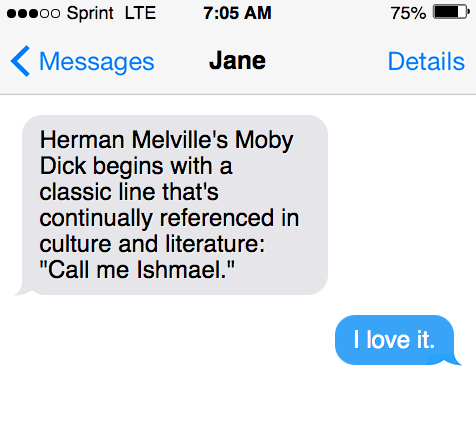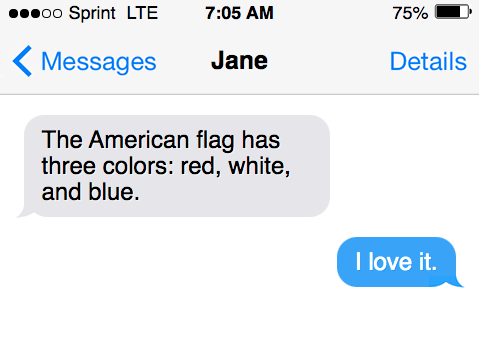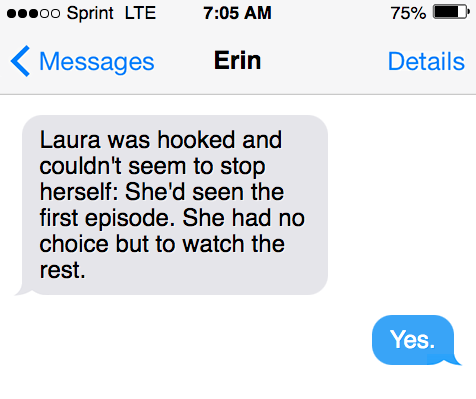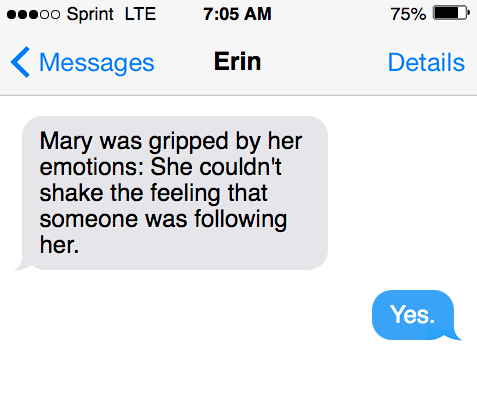Does the word after a colon follow with a lowercase or a capital letter? Which is the better choice in English writing? Do you capitalize after a colon?
The question on whether to use a capital after a colon has been a source of contention amongst grammarians. Even still, style manuals and grammarians debate on which is the correct answer to the question.
Many writers find the question of capitalizing after a colon to be an issue of style as opposed to structure.
With that in mind, the key is to remain consistent in writing; so, either capitalize after a colon or don’t, but stick to one!
Read on to learn more, and learn whether to when, and where to capitalize after a colon.

What’s a colon?
A colon is a punctuation mark in grammar that looks like two dots or periods stacked on top of each other (:)
Colons indicate to the reader that the following information elaborates on the sentence preceding the colon.
Merriam-Webster defines the punctuation mark as:
“[colon] introduce clauses or phrases that serve to describe, amplify, or restate what precedes them. Often they are used to introduce a quote or a list that satisfies the previous statement.” —Merriam-Webster.
When to use a colon?
Colons conjoin two independent clauses together and signify a relationship between them.
They attach explanatory sentences which emphasize or add light to what was mentioned in the first sentence.
Colons highlight to the reader that the second clause relates or expounds upon information provided in the first clause or sentence.
In British English, the first letter after a colon is only capitalized when it’s introducing a proper noun or acronym.
American English grammar works differently; and specifies capitalization after colons in various cases.
This guide focuses on American English, where, as a general rule, colons do not follow a dependent clause or a sentence fragment. Instead, they almost always follow an independent clause or a complete sentence.

Fortunately, what can go after a colon is much more flexible than what precedes it:
- A complete sentence.
- Dependent clause.
- List.
- Quote and other forms of punctuation.
- Vertical Lists
What do the style manuals say about capitalizing after a colon?
The style guides have conflicting opinions on colon usage and whether it’s correct to capitalize the first word after a colon.
This is most likely why there is longstanding confusion over how to properly use a colon, and why errors occur when it comes to this tricky tool of punctuation.
Style guides agree on the following:
When independent clauses precede colons, which follow with quotation marks, the first word within the quotation should be capitalized. Take a look:
Incorrect: Herman Melville’s Moby Dick begins with a classic line that’s continually referenced in culture and literature: “call me Ishmael.”
Correct: Herman Melville’s Moby Dick begins with a classic line that’s continually referenced in culture and literature: “Call me Ishmael.”

Chicago Manual of Style
Answer: The Chicago Manual of Style recommends capitalizing after a colon only when a colon introduces two or more sentences.
When only one sentence follows a colon, do not capitalize the first word after the colon.
Similarly, if a colon introduces a dependent clause or an incomplete sentence, do not capitalize the first letter that follows the colon.
Lastly, do not capitalize the first word after a colon when it introduces a list or series of things/events.
The Chicago Manual of Style Correct/Incorrect sentences examples:
- Incorrect: The American flag has three colors: Red, white, and blue.
- Correct: The American flag has three colors: red, white, and blue.
- Incorrect: Sarah is a straight-A student that studied hard to achieve one thing: Admission to her dream college.
- Correct: Sarah is a straight-A student that studied hard to achieve one thing: admission to her dream college.
- Incorrect: She went to the grocery store to pick up everything she needed for dinner: Chicken, tomatoes, rice, and lettuce.
- Correct: She went to the grocery store to pick up everything she needed for dinner: chicken, tomatoes, rice, and lettuce.
Incorrect: Laura was hooked and couldn’t seem to stop herself: she’d seen the first episode. she had no choice but to watch the rest.
Correct: Laura was hooked and couldn’t seem to stop herself: She’d seen the first episode. She had no choice but to watch the rest.
Rules to remember:
- In the second example, the first word (after the colon), is not capitalized because there is only one clause that follows, not two clauses or more.
- In the first and third examples, the word introduces which is why the first word is not capitalized.
- In the fourth example, the first word after a colon is capitalized since two or more sentences follow.
Most style manuals recommend capitalizing to introduce body text, or excerpts from other writing. This is common in article writing or academic writing, which often require longer quotes or passages as supporting text. Colons are common in scriptwriting to indicate direct speech or a certain character’s line, and, in such cases, do not need quotation marks.

Colon Capitalization Exceptions
There are a few exceptions for cases where it’s recommended to use capitals after a colon: when the word after a colon introduces a proper noun; like a person’s name, or the name of a specific place, title, or quote. Take a look:
Incorrect: Frank couldn’t believe what he saw in front of his eyes: anna, his high-school sweetheart whom he hadn’t seen in years and had been looking for, was standing right there looking right back at it.
Correct: Frank couldn’t believe what he saw in front of his eyes: Anna, his high-school sweetheart whom he hadn’t seen in years and had been looking for, was standing right there looking right back at it.
Of course, in the English language, anytime a proper noun is mentioned in writing, use a capital letter.
Remember that proper nouns refer to specific things, places and people; and are emphasized in English by the use of capital letters.
APA Publication Manual
APA style (Publication of the American Psychological Association) recommends capitalizing after a colon when it introduces a single complete sentence or independent clause.
The AP Style (Associated Press), shares the same opinion as the APA, in this way: both recommend capitalization after colons when they introduce complete sentences.
Whether it’s ironic to write about correct colon usage according to a certain style guide, while also not following their specific instruction in the process of said writing, is up for debate.

Example sentences using a colon
- Incorrect: Mary was gripped by her emotions: she couldn’t shake the feeling that someone was following her.
- Correct: Mary was gripped by her emotions: She couldn’t shake the feeling that someone was following her.
In Review
When it’s a matter of style, the best choice on whether to capitalize after a colon depends on the referenced source.
Whether it’s for school, university, book writing, book publishing, or article writing, the best course of action is to find out the citation style that’s accepted or utilized and follow the instruction that the writing manual provides.

It’s recommended in writing to use capitals after a colon in the following cases:
- When introducing a list or a vertical list.
- When the word is a proper name, name of a place or thing, or title of a book, movie, music, etc.
- To introduce a quote.
Glossary
- Definition of colon: merriam-webster.com/words-at-play/when-to-use-colon-guide
Sources
- A Guide to Using Colons – Merriam-Webster
- publication-manual-7th-edition-introduction.pdf – APA Style
- A Guide to Using Semicolons – Merriam-Webster
Inside this article
Fact checked:
Content is rigorously reviewed by a team of qualified and experienced fact checkers. Fact checkers review articles for factual accuracy, relevance, and timeliness. Learn more.
Core lessons
Glossary
- Abstract Noun
- Accusative Case
- Anecdote
- Antonym
- Active Sentence
- Adverb
- Adjective
- Allegory
- Alliteration
- Adjective Clause
- Adjective Phrase
- Ampersand
- Anastrophe
- Adverbial Clause
- Appositive Phrase
- Clause
- Compound Adjective
- Complex Sentence
- Compound Words
- Compound Predicate
- Common Noun
- Comparative Adjective
- Comparative and Superlative
- Compound Noun
- Compound Subject
- Compound Sentence
- Copular Verb
- Collective Noun
- Colloquialism
- Conciseness
- Consonance
- Conditional
- Concrete Noun
- Conjunction
- Conjugation
- Conditional Sentence
- Comma Splice
- Correlative Conjunction
- Coordinating Conjunction
- Coordinate Adjective
- Cumulative Adjective
- Dative Case
- Determiner
- Declarative Sentence
- Declarative Statement
- Direct Object Pronoun
- Direct Object
- Diction
- Diphthong
- Dangling Modifier
- Demonstrative Pronoun
- Demonstrative Adjective
- Direct Characterization
- Definite Article
- Doublespeak
- False Dilemma Fallacy
- Future Perfect Progressive
- Future Simple
- Future Perfect Continuous
- Future Perfect
- First Conditional
- Irregular Adjective
- Irregular Verb
- Imperative Sentence
- Indefinite Article
- Intransitive Verb
- Introductory Phrase
- Indefinite Pronoun
- Indirect Characterization
- Interrogative Sentence
- Intensive Pronoun
- Inanimate Object
- Indefinite Tense
- Infinitive Phrase
- Interjection
- Intensifier
- Infinitive
- Indicative Mood
- Participle
- Parallelism
- Prepositional Phrase
- Past Simple Tense
- Past Continuous Tense
- Past Perfect Tense
- Past Progressive Tense
- Present Simple Tense
- Present Perfect Tense
- Personal Pronoun
- Personification
- Persuasive Writing
- Parallel Structure
- Phrasal Verb
- Predicate Adjective
- Predicate Nominative
- Phonetic Language
- Plural Noun
- Punctuation
- Punctuation Marks
- Preposition
- Preposition of Place
- Parts of Speech
- Possessive Adjective
- Possessive Determiner
- Possessive Case
- Possessive Noun
- Proper Adjective
- Proper Noun
- Present Participle
- Prefix
- Predicate



